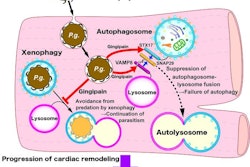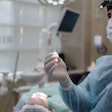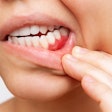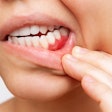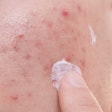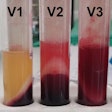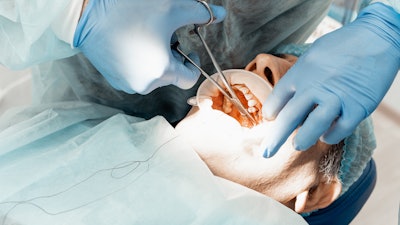
Antibiotic prophylaxis in healthy patients undergoing dental implant surgery may lead to uninterrupted changes in oral bacteria that affect alveolar bone wound healing. The animal study was published on September 4 in the Journal of Clinical Periodontology.
Taking preventive amoxicillin or clindamycin for implant placement surgery may dysregulate osteoimmune wound healing and weaken the interface, which is the percentage of the implant surface contacting the peri-implant alveolar bone and which measures the amount of osseointegration, the authors wrote.
“Clinically administering prophylactic antibiotics for dental implant placement surgery may dysregulate implant osteoimmune wound healing,” wrote the authors, led by Dr. Chad Novince, PhD, of the college of dental medicine at Medical University of South Carolina in Charleston.
Worldwide, most clinicians routinely prescribe perioperative antibiotics as a preventive measure when placing implants surgically. Recently, clinical trials have shown that commonly used antibiotics, including amoxicillin and clindamycin, for dental implant placement surgery have negligible effects on postsurgical site complications in healthy patients. Also, the effects that preventive antibiotics have on wound healing related to surgical dental implant placement remains unclear.
To understand how antibiotics may affect implant healing, the author developed a murine dental implant placement surgical technique that replicates implant placement in humans. Groups of mice were given a three-day course of perioperative amoxicillin or clindamycin or a vehicle.
Gingival bacteria were assessed via 16S sequencing, a method used to identify bacteria based on the 16S ribosomal RNA gene, and flow cytometry was used to evaluate helper T-cell oral immunity. Osteoclasts and osteoblasts were assessed via histomorphometry, and microcomputed tomography was used to evaluate implant osseointegration, according to the study.
Administering a course of prophylactic antibiotics to mice disrupted the gingival bacteriome, dysregulated dental implant placement surgery-induced helper T-cell oral immunity, decreased osteoclasts and osteoblasts that were lining peri-implant alveolar bone, and diminished the implant-bone interface, the authors wrote.
In the vehicle-treated mice, the interface range was 55% to 76%. However, perioperative prophylactic antibiotics reduced the bone-implant interface. With amoxicillin, the interface range was 54% to 61%, and the range was 40% to 66% in those given clindamycin, they wrote.
One limitation of the study was that the authors were unable to compare outcomes between mice given amoxicillin and mice treated with clindamycin, the authors wrote.
Since dental implant success relies on functional connectivity between the alveolar bone and the implant, biomechanical studies should be conducted in the future to better define how perioperative antibiotic prophylaxis may affect these restorations, they wrote.
“Pre-clinical study outcomes reported herein highlight that amoxicillin or clindamycin prophylaxis for dental implant placement surgery in healthy patients may dysregulate osteoimmune wound healing and attenuate the alveolar bone–implant interface,” Novince et al wrote.




